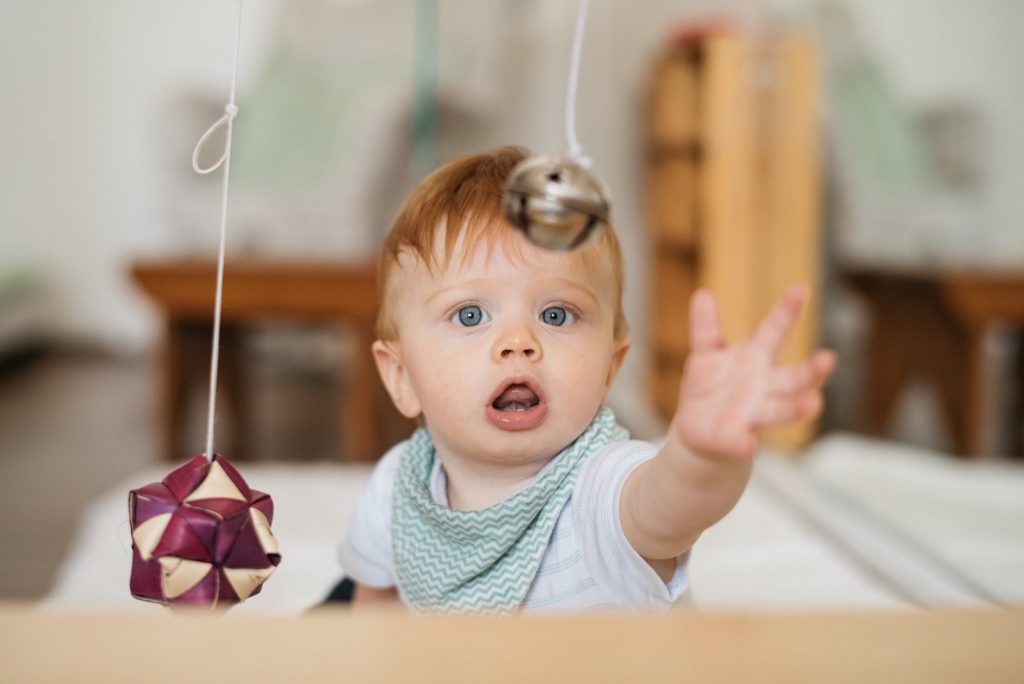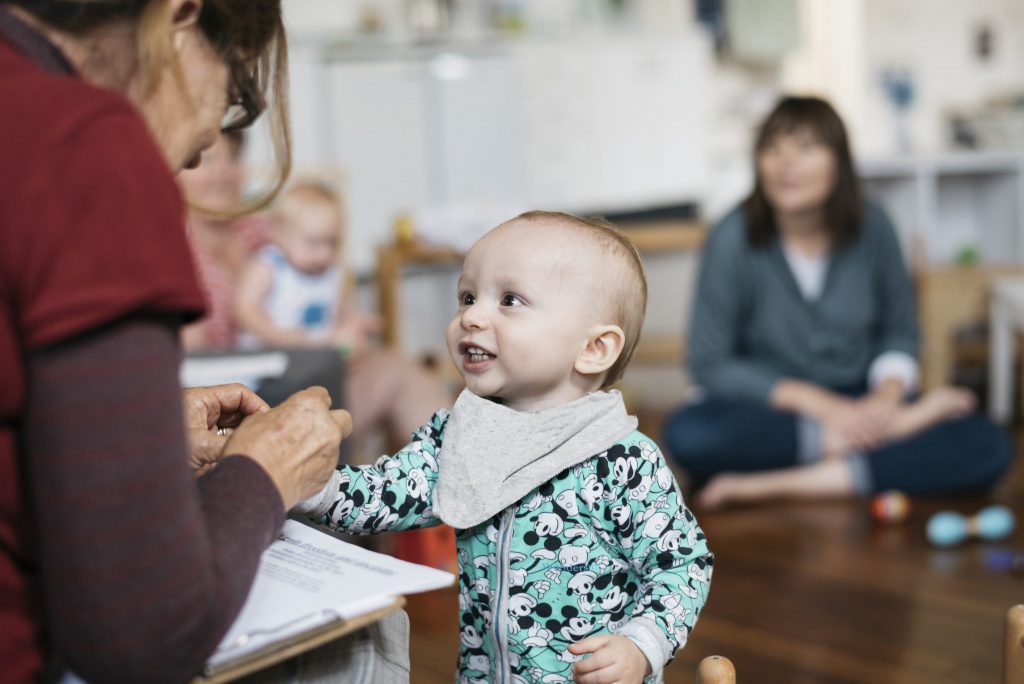Nido

Welcome to Nido..
The Montessori Nido (nest) prepared environment is for the parent(s) and child. It is also an opportunity to meet others looking to give their child a Montessori education from infancy.
The program is facilitated by a Montessori AMI trained Director of Assistants to Infancy. The sessions are conducted utilising shared information, readings, discussion, questions and answers. Observation skills of the child are learnt and ideas are provided for practical application to use in the family home.
What is the general schedule of a Nido Session?
| Welcome | Directors and participants (adult and child) greet each other with a handshake to model grace and courtesy from the youngest age. |
| Observation | Observation is the key to Montessori and helps parents/carers to understand their child. Parents/carers allow the child to explore the environment as they are able, and observe them as they make their own choices. |
| Open discussion | Exchange of ideas through sharing experiences. |
| Theory topics | Discussion topics themed for the week. |
| Friendship and community | An opportunity to build bonds and lay the foundations for community. |
| Song time | In the last ten minutes of the session the group sings a few songs. The child has a love of the human voice. It is a way of assisting the child to understand that the session is about to end and it is also fun; a chance to come together as a community and share the experience of music. |
| Farewell | When singing is finished all say farewell with a handshake. |

The Nido Classroom
The space in which the class meets is a “Montessori prepared environment” reflecting the home of the very young child. The activities presented meet the child’s developmental needs. Each activity is specially chosen to appeal to the child and aid in the building of their psycho-sensorial motor and language skills. The activities also prepare for the child’s growing independence, self-esteem, confidence and concentration span. Everyone works together, respectfully as a small community.
The Director also explains how the activities can be applied to the prepared environment of the home.
During the term, the Director covers the four foundations of movement, independence, communication and self-discipline. Other topics covered relate to the Montessori approach to the child and include:
– Montessori overview: birth to 24 months
– The human tendencies
– The absorbent mind
– Power of sensitive periods
– Senses and sensorial development
– The cognitive and motor development timeline
– Development of the hand and equilibrium
– Brain development – the mathematical mind
– Language development
– Music: the language of humanity
– Preparation of the home
– Clothing, furniture and equipment
– Food as an occasion of education
– Toileting foundations
– The history of childhood
– Fatherhood
“The development of the child during the first three years after birth is unequalled in intensity and importance by any period that precedes or follows in the whole life of the child.” Maria Montessori
